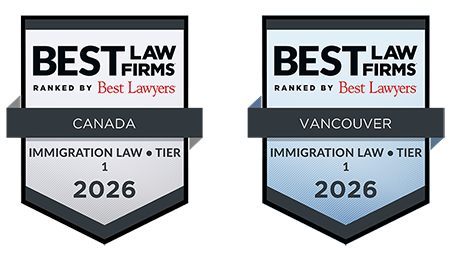Caveat Emptor is a long-standing economic maxim meaning “Buyer Beware!' It is all too applicable in the Canadian immigration process and applicants to Canada need to be fully aware of the risks they face in the midst of pervasive immigration fraud. March is Canada's Fraud Prevention Month where efforts are made to both raise awareness of and curtail the incidence of fraud and abuse in Canada's immigration program.
As stated on March 1, 2022 by Canada's Immigration Minister, Sean Fraser:
“Each year in March, Immigration Refugees and Citizenship Canada (IRCC) actively participates in the Government of Canada's Fraud Prevention Month to shine a light on the risks associated with fraud and the way that newcomers can protect themselves. The best way to be protected is to be informed and prepared. Being educated on the warning signs allows newcomers to recognize fraud, reject fraud and report fraud.”
The Canadian immigration marketplace is a difficult one to navigate with numerous immigration professionals – lawyers, Quebec notaries and immigration consultants. Be sure to confirm that your professional is properly licensed and that you have numerous referrals to confirm their reputation in the industry. Beyond the licensing capabilities of our domestic immigration world are the unscrupulous practices of the unlicensed, unregulated “ghost consultants” who have thriving businesses abroad. You have no protection whatsoever from using the services of an immigration professional who is not recognized by IRCC. Check the IRCC website to confirm who is recognized!
As further noted by Minister Fraser:
“If you choose to hire a representative, use an authorized immigration and citizenship consultant, lawyer or Quebec notary.”
What are the consequences for choosing to work with an unregulated immigration professional? They are considerable. Inaccuracies in an immigration application not only can result in a refusal of your application, but they can have far more longstanding consequences such as a finding of misrepresentation which has a 5-year penalty prohibiting any future immigration application until the five years have elapsed. Such a determination can separate husbands and wives, parents and children… and five years is a long time! Think carefully when choosing who you hire to assist you with your immigration application.
Here are some tips to ALWAYS remember:
- Check your representatives' references – at least three. And not just on the internet. People can post whatever they want people to see on the internet. You want to have real third-party verifiable references. (If you don't understand what that means – ASK).
- Remember, your application and all the information that you provide is your responsibility and yours alone. It is no defence to either a refusal of an application or a finding of misrepresentation to say “I relied on the advice of my immigration representative”. Immigration officers and Federal Court judges alike have grown weary of this excuse.
- If it sounds too good to be true – it probably is! This can not be repeated enough. I know that I have said it a multitude of times but it bears repeating. “Ooops!” is simply not a justifiable explanation for why you followed unsound but promising advice. For our further comments on the risks of immigration fraud please refer to our blog: “Guilty By Association – You are judged by the Company you Keep!”
- Understand that the immigration process is not easy. If someone is trying to tell you that it is, you should be suspect. “Come to Canada as a visitor and then get a work permit once you are here” …. that is a red flag! CBSA is routinely handing out misrepresentation findings to applicants who come to Canada on visitor visas and then go to the port of entry (POE) to “flagpole” to get work permits.
- Use the services of a licensed interpreter and/or translator to understand what is contained in your application. DO NOT RELY ON THE IN-HOUSE SERVICES OF YOUR IMMIGRATION PROFESSIONAL OR A RELATIVE OR FRIEND! The contents of your application are attributable to you and you alone, whether or not you are fluent in English or French. Invest a little extra money to ensure that your application is properly interpreted or translated to you so that you can confirm that the information is accurate.
There are fraudsters all around us in all aspects of life and perhaps even more so in the immigration universe. It is incumbent on all of us as individual applicants and immigration professionals to be cautious and accurate in the immigration application process. The fact that IRCC has a “Fraud Prevention Month” speaks to their awareness of the challenges that applicants may face when submitting their applications to come to Canada. For all of us, this is the best advice – be aware, be prudent and above all, be truthful.





